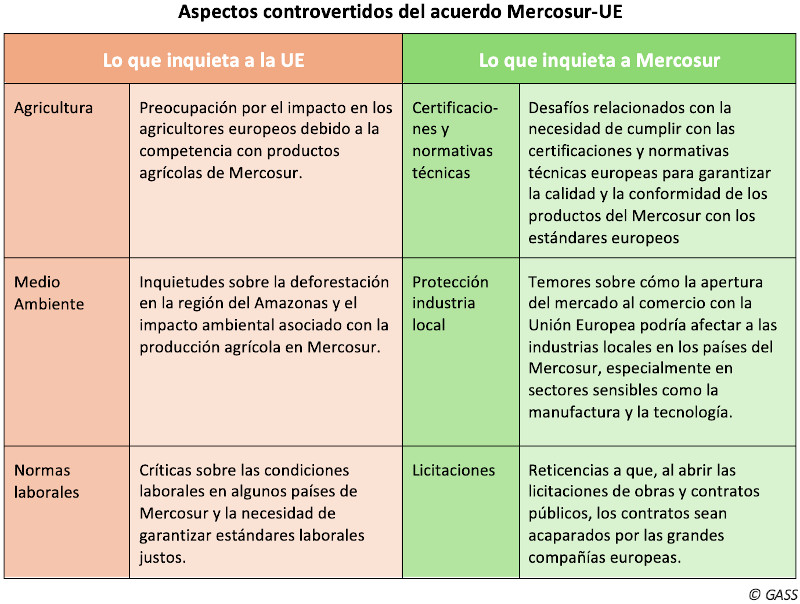In the picture
Presidents Lula and Macron in Brasilia in March 2024 [Ricardo Stuckert PR].
The window of time to conclude and sign the agreement of association between the European Union and Mercosur, which includes an ambitious agreement trade agreement, seems to have passed Closed. The protests of farmers in the EU countries are evidence of a malaise that their governments cannot enlarge by opening the floodgate to South American products. If several capitals, especially Paris, had previously insisted on blocking the agreement, the French president was categorical in his visit in March to the main supporter of the text, Brazil's Lula da Silva. Macron asked to negotiate it "from scratch".
It was considered the most important trade agreement in the world. On June 28, 2019, after more than 20 years of negotiations, the Southern Common Market (Mercosur) and the European Union (EU) finally concluded a agreement of association between both supranational entities. Only a few details remained before the text was submitted to the parliaments of the respective countries for ratification. Since then, however, no progress has been made and the five years that have elapsed have left a document from which the different governments are increasingly distancing themselves.
The agreement of association envisaged three pillars. The main and most difficult to reach a consensus on, and the one on which negotiations have run aground, is the trade aspect; the other two -political dialogue and cooperation- present fewer problems. subject It is possible that, in the case of the first point, some convergence between the two blocs could be promoted separately on the other two points, although result would fall far short of aspirations.
At the time, the trade pre-agreement was greeted with great acclaim. It was to become the largest free trade agreement in the world, involving 31 countries. These countries accounted for 720 million people and approximately 20% of the world's Economics . To these figures must be added Bolivia, which recently joined the club formed by Brazil, Argentina, Uruguay and Paraguay plenary session of the Executive Council .
At the time of the pre-agreement, the then Brazilian President Jair Bolsonaro estimated a GDP increase of almost $70 billion over 15 years for his country. To this was added an exponential growth of around $78 billion by 2035 in Brazilian exports to the European Union. But the Brazilian president's malpractice with regard to the Amazon prompted Europe, in a move led by France, to add environmental demands to what was signed in 2019, which stipulated sanctions for countries that did not meet the climate targets proposed in the Paris Agreements.
Seen by many observers as an excuse - at least as something that distracted from the main French reluctance, centered on the impact that agreement could have on its agricultural sector - the environmental issue occupied the public discrepancies expressed from Europe.
The now President Lula da Silva has made the preservation of the Amazon a focal point of his presidency. He has developed efforts such as relaunching his Action Plan for the Prevention and Control of Deforestation in the Amazon or the use of state-of-the-art technology for the control and preservation of thousands of hectares of forest. And although since his arrival in Brasilia, the loss of trees in the Brazilian Amazon has been reduced by 39%, France continues to demand environmental guarantees.
Lula's return had actually been interpreted as the impulse that the agreement Mercosur-EU needed to finally be successfully Closed . The Brazilian leader himself took the rotating presidency of Mercosur that was to take place during 2023 as the great opportunity to do so, and did everything possible to ensure that the summit that group was to hold at the end of the year would be the scenario for the advertisement of the definitive agreement . This was not possible and the process was symbolically concluded at the visit that the French president, Emmanuel Macron, made to Brazil in March 2024. "The agreement with Mercosur is a terrible agreement as it is being negotiated now. This agreement was negotiated 20 years ago. I do not defend this agreement. It is not what we want," said Macron, who proposed to renegotiate everything "from scratch".


